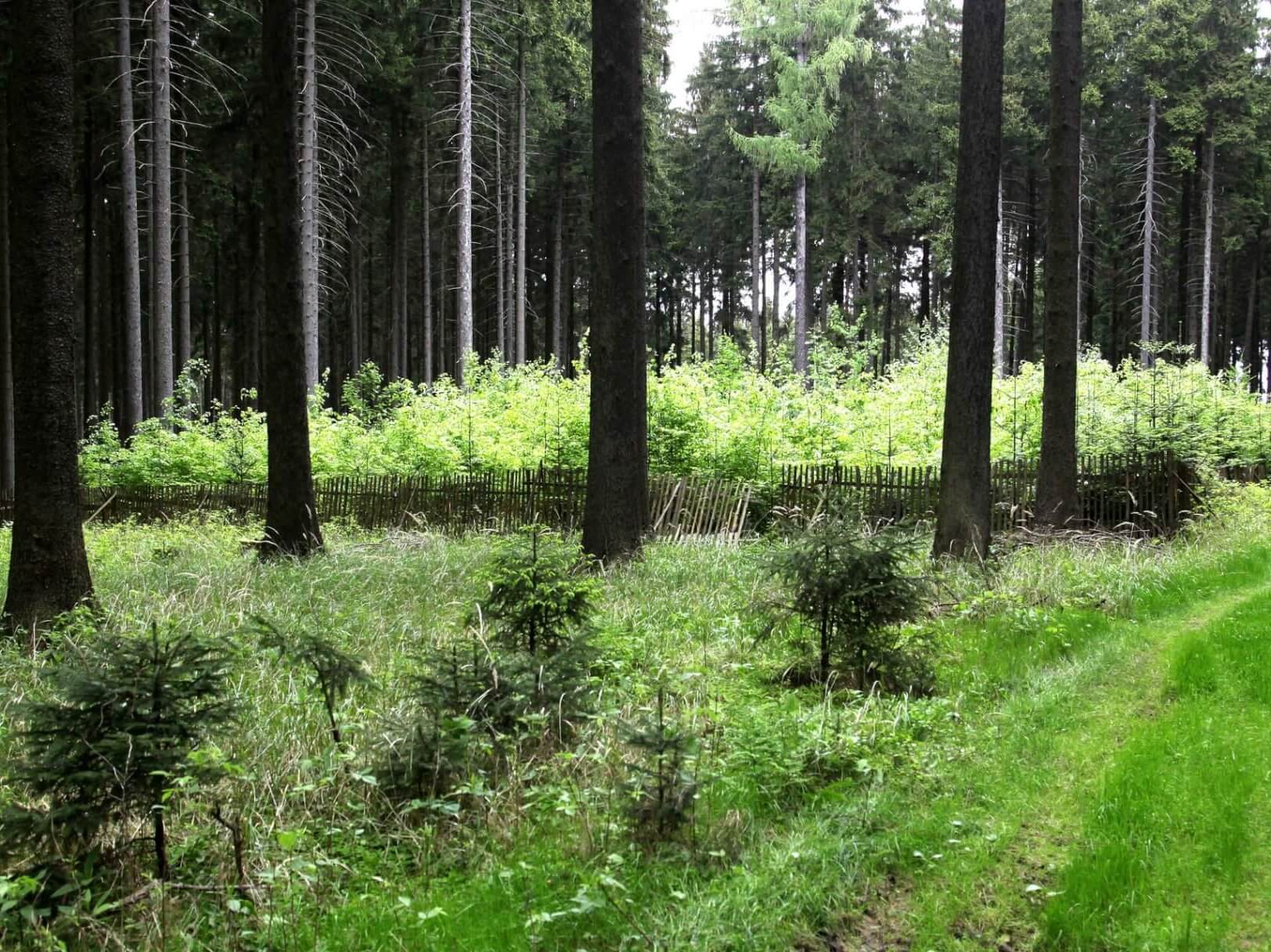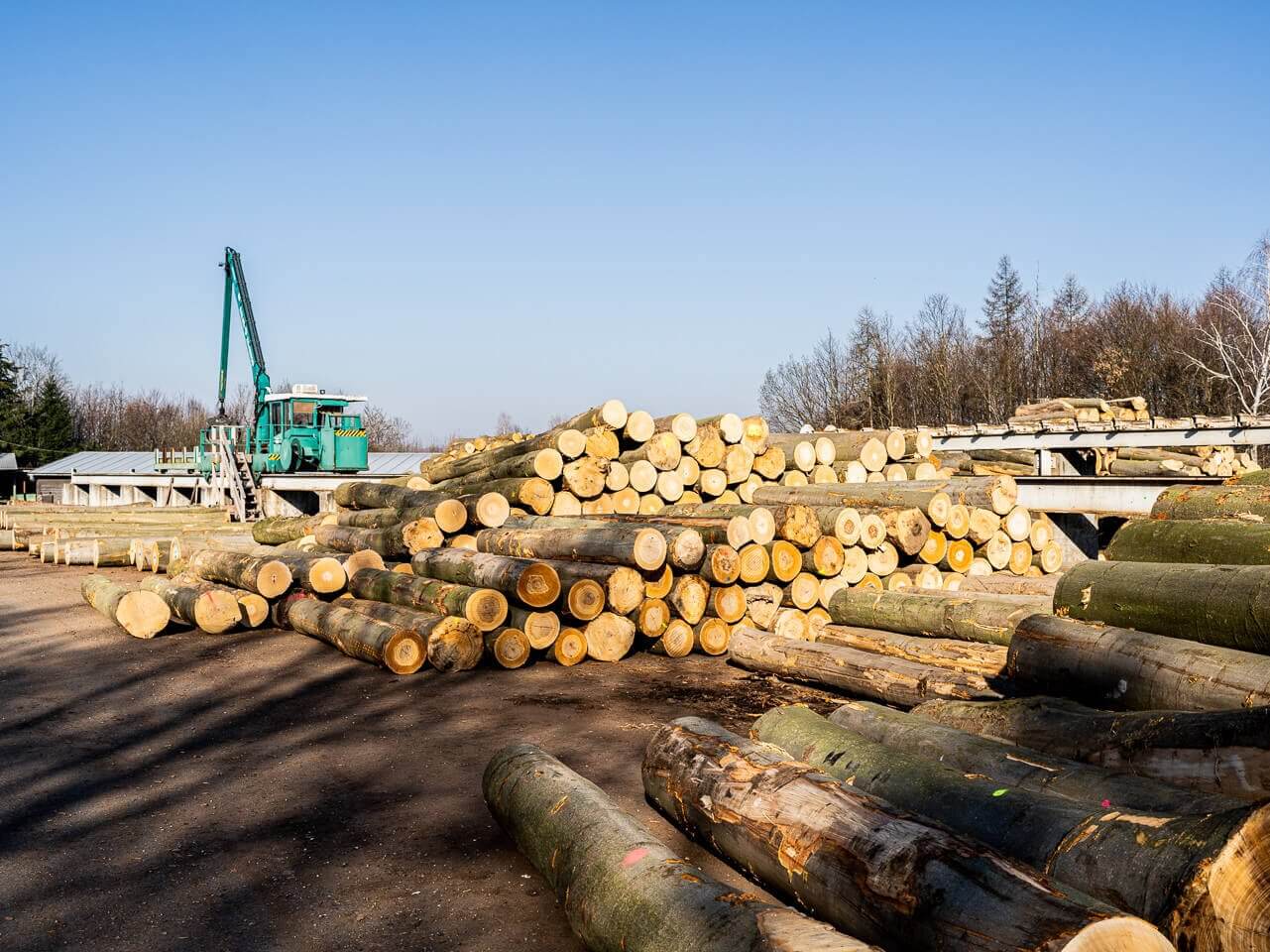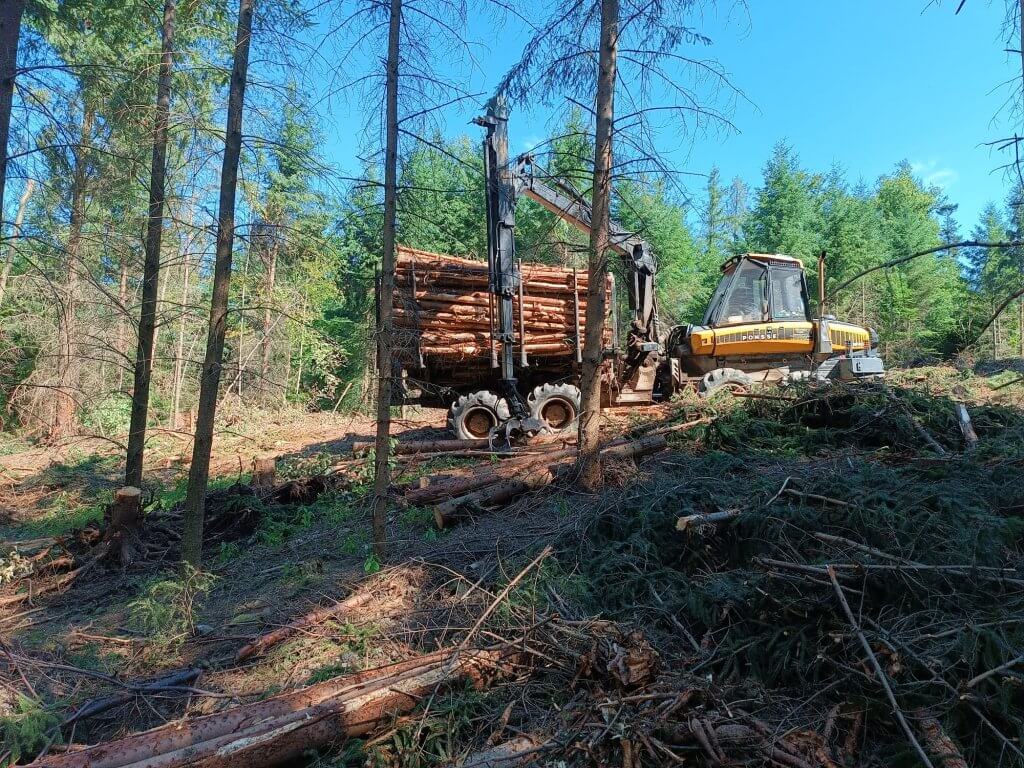Departmental Description – what we do
The Department of Forestry and Wood Economics and Policy (DFWEP) is a unique Department that focuses on all aspects of the forestry and wood sector, renewable natural resources and the environment. It combines the fields of economics, management, policy and research and provides comprehensive support in both teaching and consultancy.
The DFWEP team is mainly comprised of young academic and scientific researchers actively involved in the development of economic and management disciplines in forestry and wood science. The department is well-equipped to tackle the challenges facing the forestry sector and is dedicated to delivering innovative solutions.
Development of the DFWEP focuses on several key areas:
- Scientific research, including the creation of a unique information and advice centre for the forestry sector.
- Innovation in teaching, especially in the introduction of modern management-information systems and the use of software tools such as Business Intelligence.
- Expanding the range of educational activities for both commercial enterprises and the public and linking them with practice.
Background – where we work
- The Department’s modern teaching and research facilities, including a computer room equipped with specialised software for forestry management, economics and research, such as SEIWIN 5, EQUANTA and UNISTAT, are located in Building B on the University campus. This computer room has proved essential for the teaching of specialised subjects and for supporting scientific research.




Collaboration – we are not alone
- The Department collaborates with various commercial bodies, the public sector and businesses on forestry policy, forest economics, forest valuation, and other key topics. This cooperative endeavour has encouraged the implementation of applied research projects, the development of new technologies and the provision of strategic advice.
- DFWEP staff are members of the International Association for Economics, Management, Marketing, Quality and Human Resources in Forestry and Related Industries (WoodEMA i.e.).
- Školní lesní podnik Masarykův les Křtiny
- Ministerstvo zemědělství ČR
- Česká akademie zemědělských věd, Odbor lesního hospodářství
- Výzkumný ústav lesního hospodářství a myslivosti Jíloviště, v.v.i., Strnady
- Národní lesnický institut Brandýs nad Labem
- Česká zemědělská univerzita v Praze, Fakulta lesnická a dřevařská,
- HA-SOFT, s.r.o.
- Česká lesnická akademie Trutnov
- Střední lesnická škola v Hranicích
- Česká lesnická společnost
- Lesy České republiky, s. p.
- Vojenské lesy a statky ČR, s. p.
- Sdružení vlastníků obecních a soukromých lesů v ČR
- Sdružení dřevozpracujících podniků
- další zástupci z řad obecních, městských a soukromých majetků a podnikatelských subjektů lesního hospodářství a dřevozpracujícího průmyslu
- European Forest Institute Joensuu (Finsko)
- Univerzita Zagreb – Šumarski Fakultet (Chorvatsko)
- Univerzita v Ljubljani Biotechniška fakulteta (Slovinsko)
- Univerzita Beograd – Šumarski Fakultet (Srbsko)
- The University of Montana, College of Forestry and Conservetion (USA)
- Wood Technology Institute Poznan (Polsko)
- University of Dąbrowa Górnicza (Polsko)
- Uniwersytet Przyrodnicze Poznaň (Polsko)
- Holzindustrie Maresch GmbH (Rakousko)
- Aristotle University of Thessaloniki, Faculty of Forestry and Natural Environment (Řecko)
- Slovenská akadémia podohospodárských vied, Sekce lesníckej ekonomiky a politiky Odboru lesníctva (Slovensko)
- Lesnícky výskumný ústav Zvolen (Slovensko)
- Národné lesnícke centrum Zvolen (Slovensko)
- Technická univerzita ve Zvoleně (Slovensko)
Departmental staff – who we are
We are a young team of academics and scientific researchers whose activities cover all areas of economics and management in the forestry and timber sector.
Head of department – Department of Forest and Wood Products Economics and Policy
Department of Forest and Wood Products Economics and Policy
Staff
-
Ing. Róbert Babuka, Ph.D., MBA
Assistant Professor
Office: B4.51
Phone: +420 545 134 080
E-mail: robert.babuka@mendelu.cz
-
Ing. Dastan Bamwesigye, Ph.D.
Assistant Professor
Office: B5.53
Phone: +420 545 136 257, +420 545 134 077
E-mail: dastan.bamwesigye@mendelu.cz
-
doc. Ing. David Březina, Ph.D.
Academic staff – Associate Professor
Office: B5.02
Phone: +420 545 134 075
E-mail: david.brezina@mendelu.cz
-
JUDr. Martin Cempírek, Ph.D.
Assistant Professor
Office:
Phone: +420 545 134 312
E-mail: martin.cempirek@mendelu.cz
-
JUDr. Ing. Martin Flora, Dr.
Assistant Professor
Office: B4.51
Phone: +420 545 134 080
E-mail: martin.flora@mendelu.cz
-
doc. Ing. Petra Hlaváčková, Ph.D.
Academic staff – Associate Professor
Office: B5.05
Phone: +420 545 134 073
E-mail: petra.hlavackova@mendelu.cz
-
Ing. Kateřina Holušová, Ph.D. et Ph.D.
Assistant Professor
Office: B3.24, B4.49
Phone: +420 545 134 078
E-mail: katerina.holusova@mendelu.cz
-
doc. Ing. Andrea Janáková Sujová, PhD.
Academic staff – Associate Professor
Office:
Phone: +420 545 134 312
E-mail: andrea.sujova@mendelu.cz
-
doc. Ing. Václav Kupčák, CSc.
Academic staff – Associate Professor
Office: B5.55
Phone: +420 545 134 071
E-mail: vaclav.kupcak@mendelu.cz
-
Ing. Josef Lenoch, Ph.D.
Assistant Professor
Office: B5.52
Phone: +420 545 134 076
E-mail: josef.lenoch@mendelu.cz
-
Ing. Jitka Meňházová, Ph.D.
Assistant Professor
Office: B5.57
Phone: +420 545 134 074
E-mail: jitka.menhazova@mendelu.cz
-
Ing. Jakub Michal, Ph.D.
Academic staff – assistant
Office:
Phone: +420 545 134 312
E-mail: jakub.michal@mendelu.cz
-
Ing. Tomáš Pospíšil
Academic staff – assistant
Office: B4.50
Phone: +420 545 134 069
E-mail: tomas.pospisil@mendelu.cz
-
Ing. Dalibor Šafařík, Ph.D.
Assistant Professor
Office: B5.04
Phone: +420 545 134 072
E-mail: dalibor.safarik@mendelu.cz
-
Lenka Šafaříková
Technical organization worker
Office: B5.01
Phone: +420 545 134 070
E-mail: lenka.safarikova@mendelu.cz
-
Ing. Vlastimil Vala, CSc.
Assistant Professor
Office: B5.04
Phone: +420 545 134 072
E-mail: vlastimil.vala@mendelu.cz
History
- After the establishment of the forestry programme at the University of Agriculture in Brno, the teaching of economic disciplines was entrusted to the Department of Forest Economics, which was led for 30 years by Prof. Dr. Ing. Rudolf Haša. This department was one of the four founding forestry departments that formed the foundation of forestry education at the faculty when it was established in 1920. The first specialized subjects taught included commerce, forest management organization, labour studies, and forest policy.
- The considerable scope of teaching, research, and other activities necessitated a new organizational structure in the early 1960s. As a result, with the approval of both the faculty’s academic board and the University of Agriculture, the Department of Forest Management Economics was established on May 1, 1962. The first head of the department was Prof. Ing. Otakar Polák. The Department of Forest Management Economics, and later the Department of Economics and Forest Management, continued to evolve in response to the development and differentiation of economic disciplines within the Faculty of Forestry.
- In 1991, the department was renamed the Department of Forest Economics and Forest Management. In the same year, a new study programme—Wood Technology Engineering—was introduced at the faculty, and the department began providing courses in economics for this programme as well. This expansion was reflected in the new name of the department: the Department of Forestry and Wood Technology Economics and Management.
- In 1996, the Landscape Engineering programme was launched—by then already at the Faculty of Forestry and Wood Technology of Mendel University of Agriculture and Forestry in Brno. In addition to forestry and wood technology, the department began to provide economic instruction for landscape-related studies. This broadened scope of disciplines made it possible to approach the sector from the perspective of comprehensive political concepts. Accordingly, the department was renamed the Department of Forestry and Wood Technology Economics and Policy.